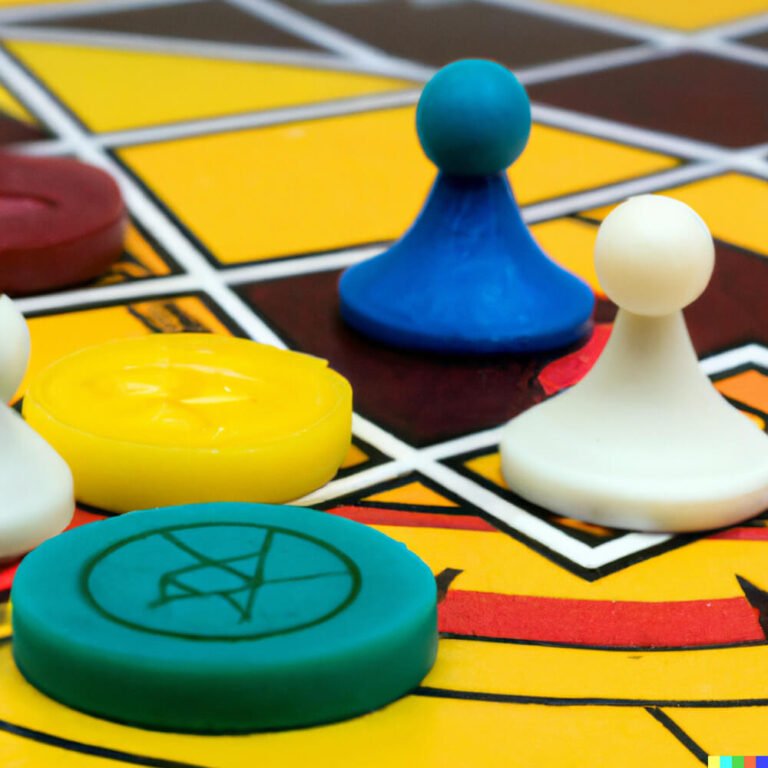When it comes to timeless entertainment, classic board games have always been a staple in households around the world. From the competitive spirit of Monopoly to the strategic thinking required for Chess, the top classic board games all time have brought joy and bonding to families and friends for generations.
The roots of classic board games can be traced back centuries, with evidence of ancient civilizations having their own versions of traditional board games. Throughout history, these games have evolved and adapted to different cultures and societies, leaving a lasting impact on the way we interact and enjoy leisure time.
In this article, we will take a closer look at the history of classic board games, explore the most popular titles that have stood the test of time, examine their evolution over the years, and highlight the numerous benefits they offer. Additionally, we will delve into tips for starting a classic board game collection, consider their role in fostering family bonds, and speculate on what the future holds for these beloved pastimes.
Join us as we embark on a journey through the world of classic board games.
History of Classic Board Games
Classic board games have been enjoyed by people for centuries, with their origins dating back to ancient civilizations. The history of classic board games is rich and diverse, with each game having its own unique story and significance.
Ancient Origins of Classic Board Games
Many classic board games have roots in ancient civilizations, such as the Egyptian game of Senet, which dates back to around 3100 BC. This game was often included in burial tombs as a form of entertainment for the afterlife. Similarly, the Indian game of Pachisi, which eventually evolved into the modern game of Ludo, has been played for over 1,500 years. These ancient games demonstrate the enduring appeal of board games throughout history.
Medieval and Renaissance Board Games
During the medieval and Renaissance periods, classic board games continued to evolve and gain popularity. Chess, for example, originated in India before spreading to Persia and Europe. By the 15th century, chess had become a popular pastime among European nobility. Similarly, traditional games like Backgammon and Nine Men’s Morris gained popularity during this time period.
Modern Era Board Games
The modern era has also seen the rise of countless classic board games that have become beloved by generations. The mid-20th century saw the introduction of iconic games such as Monopoly, Scrabble, and Clue (or Cluedo), all of which have become timeless favorites among players young and old. As technology has advanced, many classic board games have been adapted into digital formats or updated with new editions to appeal to contemporary audiences while still maintaining their nostalgic charm.
The Most Popular Classic Board Games
When it comes to classic board games, there are a few timeless favorites that have stood the test of time. These games have been enjoyed by people of all ages for generations and continue to be some of the most popular choices for game nights and family gatherings. Here are some of the top classic board games that have remained beloved throughout the years:
- Monopoly: This iconic game of buying, selling, and trading properties has been a staple in many households since it was first introduced in the 1930s.
- Scrabble: A word game that challenges players to create words using letter tiles, Scrabble has been a favorite among bookworms and wordsmiths for decades.
- Chess: Dating back to ancient times, chess is a strategic game of skill and intellect that continues to be widely played around the world.
- Clue: A murder mystery game that requires deductive reasoning and logical thinking, Clue has captivated players since it was first released in the mid-20th century.
- Risk: A game of global domination and strategy, Risk has been a favorite among those who enjoy a good challenge and strategic planning.
These classic board games have not only provided hours of entertainment for countless individuals and families over the years but have also become ingrained in popular culture. Their enduring popularity is a testament to the timeless appeal of these beloved games. Whether it’s rolling dice, moving pieces around a board, or strategizing with cards, these classic board games continue to bring joy to people of all ages.
How Classic Board Games Have Evolved Over Time
Classic board games have a rich history that traces back to ancient civilizations such as Egypt and Mesopotamia. The earliest known board game is Senet, which dates back to around 3100 BC. Throughout history, classic board games have evolved in terms of design, materials, and rules. For example, the classic game of chess originated in India around the 6th century AD and has undergone various changes as it spread across different cultures.
In the 20th and 21st centuries, classic board games continued to evolve with technological advancements. Many traditional board games have been adapted into digital versions for online play or mobile apps. This has made these games more accessible to a wider audience while still retaining their original gameplay mechanics.
Moreover, classic board games have evolved in terms of inclusivity and representation. Modern iterations of popular classics such as Monopoly and Scrabble now feature diverse characters and themes, reflecting the changing social landscape. These adaptations have allowed classic board games to remain relevant and appealing to new generations while honoring their timeless appeal.
| Classic Board Game | Origin |
|---|---|
| Senet | Around 3100 BC (Egypt) |
| Chess | Around 6th Century AD (India) |
The Benefits of Playing Classic Board Games
Playing classic board games offers numerous benefits for people of all ages. Whether it’s improving cognitive abilities, promoting social interaction, or simply providing entertainment, these timeless games have a lot to offer. Here are some of the key benefits of playing classic board games:
- Enhances critical thinking skills: Classic board games require players to think strategically and make decisions that will affect the outcome of the game. This helps in enhancing critical thinking skills as players need to plan ahead and anticipate their opponent’s moves.
- Promotes social interaction: Board games provide an opportunity for people to come together and engage in face-to-face interaction. They allow players to bond, communicate, and share experiences in a way that digital games cannot replicate.
- Reduces stress: Engaging in a board game can help reduce stress and anxiety as it provides an escape from the demands of daily life. It allows players to focus on the game at hand and enjoy some lighthearted fun with friends or family.
In addition to these benefits, playing classic board games can also improve memory, concentration, and decision-making skills. These games have stood the test of time because they bring people together and provide countless hours of fun and enjoyment. Whether it’s a rainy day indoors or a family gathering, classic board games are a great way to spend quality time with loved ones while reaping the many advantages they offer.
Tips for Starting a Classic Board Game Collection
If you’re looking to start your own collection of classic board games, there are a few things to keep in mind. First and foremost, consider the types of games you enjoy playing. Whether it’s strategy-based games like chess or more luck-based games like Monopoly, choose games that match your preferences.
It’s also important to consider the age range of the players who will be joining in on game nights. Some classic board games may be more suitable for young children, while others are best played with adults.
Once you’ve identified the types of games you want to include in your collection, start by acquiring the most popular ones. Games like Scrabble, Risk, and Clue are great additions to any classic board game collection. Additionally, consider adding some vintage or specialty editions of popular games to add uniqueness to your collection. You can often find these through online marketplaces or at specialty board game shops.
Finally, don’t forget about storage and organization for your growing collection. Invest in shelves or storage containers that can neatly store your classic board games while keeping them easily accessible for future game nights.
| Classic Board Game | Year Released |
|---|---|
| Scrabble | 1948 |
| Risk | 1957 |
| Clue | 1949 |
The Role of Classic Board Games in Family Bonding
Family bonding is a crucial aspect of maintaining strong relationships and creating lasting memories. Classic board games have played a significant role in promoting family bonding for generations, offering a fun and engaging way for family members to spend quality time together. Whether it’s a competitive game of Monopoly or a cooperative game of Scrabble, classic board games provide an opportunity for families to interact, communicate, and enjoy each other’s company.
Building Stronger Relationships
Playing classic board games with family members can help strengthen the bond between parents and children, siblings, and even extended family members. These games encourage teamwork, strategic thinking, and healthy competition, fostering positive interactions and enhancing communication skills within the family unit. Moreover, the laughter and joy that come from playing these games create a warm and inviting atmosphere that brings family members closer together.
Creating Lasting Memories
Classic board games are not just about winning or losing; they are about creating memorable experiences that will be cherished for years to come. Whether it’s recalling the intense moments during a game of Clue or reminiscing about the first time someone landed on Park Place in Monopoly, these shared experiences contribute to the tapestry of family history. The nostalgia associated with these games often leads to fond memories that families can look back on with joy.
Promoting Healthy Communication
One of the most valuable benefits of classic board games in family bonding is their ability to promote healthy communication among family members. The act of playing these games requires individuals to listen to one another, express their thoughts clearly, and work together towards a common goal.
This not only strengthens familial relationships but also teaches important life skills that can be applied outside the context of gaming. Overall, classic board games serve as an effective tool for nurturing open communication within families.
The Future of Classic Board Games
In conclusion, classic board games have withstood the test of time and continue to hold a special place in the hearts of people around the world. As technology advances, there is still a strong interest in preserving and enjoying these traditional games that have been passed down through generations. The future of classic board games looks promising, as they have proven to be a timeless form of entertainment and social interaction.
With the rise of nostalgia and a desire for more unplugged social activities, classic board games are likely to remain popular for years to come. Additionally, the potential for advancements in design and gameplay will continue to breathe new life into these beloved games, making them appealing to both new and seasoned players alike.
As we look ahead, it is clear that classic board games will continue to play an important role in bringing people together, whether it’s within families, among friends, or even in educational settings. Their ability to foster communication, critical thinking, and strategic skills makes them a valuable form of entertainment that transcends age and cultural boundaries. In essence, classic board games are here to stay, offering a timeless way for people to connect and create cherished memories together.
Frequently Asked Questions
What Is the Most Popular Classic Board Game?
The most popular classic board game is widely considered to be Monopoly. With its origins dating back to the early 20th century, Monopoly has remained a staple in many households and continues to be enjoyed by both children and adults alike.
What Is the Best Board Game of All Time?
It’s difficult to definitively determine the best board game of all time as preferences vary from person to person. However, one game that often comes up in discussions about the best board game is Chess.
With origins dating back over a thousand years, Chess is a strategic and challenging game that has stood the test of time and continues to be revered by players around the world.
What Is the Most Played Board Game Ever?
The most played board game ever is often said to be Scrabble. This word-based game has been enjoyed by millions of people since its creation in the 1930s. Its simple yet engaging gameplay makes it a favorite for family gatherings, social events, and even competitive tournaments.

I love playing all kinds of games – from classics like Monopoly to modern favourites like Ticket to Ride.
I created this blog as a way to share my love of board games with others, and provide information on the latest releases and news in the industry.





